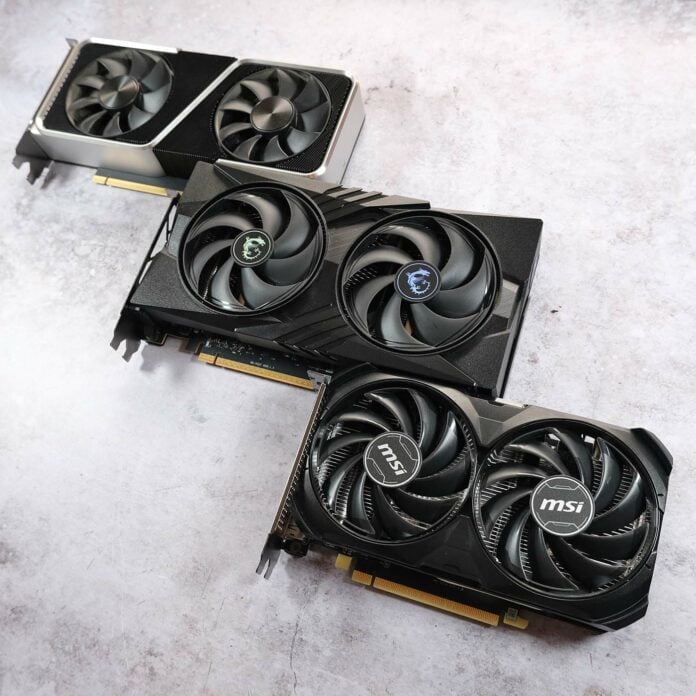Nvidia is apparently scaling back the availability of its low- and mid-range GeForce cards to avoid an oversupply situation. This reduction mainly concerns the company’s board partners, which should get fewer low-end Blackwell chips and their accompanying memory. The aim is to maintain just the right amount of GeForce cards to keep prices stable.
According to new information coming from the Board Channels forums, Nvidia will have fewer GPU and memory bundles available for order. The bundles in question concern the GeForce RTX 5060 and RTX 5060 Ti 8GB, forcing graphics card manufacturers to only produce limited quantities of these models. To be exact, the RTX 5060 supply will be reduced by 30%, while the RTX 5060 Ti will be cut by 15%.
The plan behind this move is to tame the ongoing oversupply situation plaguing these lower-tier cards, which have a hard time convincing enough users. An unsurprising situation in light of the subpar reviewers’ reception, who tend to point out the lack of sufficient memory for modern gaming. Add to that the somewhat healthy competition at this price range and you get a mix that isn’t to Nvidia’s advantage.
To be clear, overall, Nvidia is probably selling more RTX 5060 and RTX 5060 Ti than AMD and Intel’s equivalents, but that amount is apparently insufficient to drain the available stocks. For reference, Steam’s hardware survey indicates that the RTX 5060 and RTX 5060 Ti have gained 0.43% and 0.17% market share in the last month alone.
This is quite unfortunate for those who were waiting for an oversupply situation which would force price discounts. If these reports are correct, then Nvidia’s move will avoid this situation, meaning that the RTX 5060 and RTX 5060 Ti prices are unlikely to budge. Worse, if the demand increases, prices may even increase. For the time being, this seems unlikely as Nvidia’s partners have plenty of GPUs in their inventory, ready to fill any spike in demand.
Both the RTX 5060 and RTX 5060 Ti 8GB use variants of the GB206 Blackwell GPU, targeting the budget segment with 8GB of memory. They are quite appreciated by OEMs and system integrators due to their reasonable performance and lower price tag. They offer all the latest Nvidia features, from DLSS 4 to Multi-Frame Generation, making them go-to parts for $1,000-ish pre-built machines.
While this change may never impact the global market in a visible way, it has the potential to free up manufacturing space for higher-end models, perhaps making them more readily available. Depending on your region, you may have a hard time finding a specific GeForce card at MSRP, so perhaps this may indirectly help. If there are any effects, we should start seeing them later this month.

